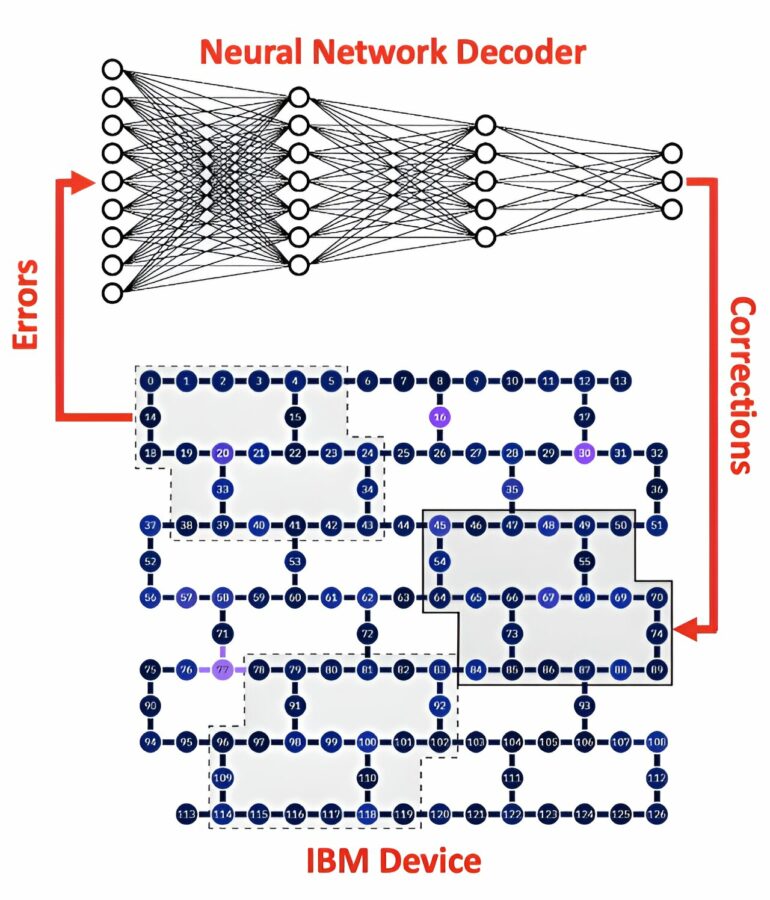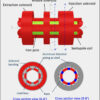Could artificial intelligence help overcome one of quantum computing’s biggest roadblocks?
New research from Australia’s national science agency has found AI could help solve quantum computing errors. This is a key step which could one day lead to quantum computers solving complex real-world problems.
CSIRO research, published as a letter in Physical Review Research journal, found for the first time that AI could help process and resolve quantum errors known as qubit noise, which are generated by the nature of quantum physics.
Overcoming these errors is widely considered the largest barrier to advanced quantum computers moving from experiment to tool.
In conventional computers, information is stored and processed in “bits,” which work on the principles of binary numbers. Each bit can represent either 0 or 1. But quantum computing devices are made up of quantum bits, or “qubits.”
These work on the special properties of quantum mechanics, allowing them to represent 0, 1, or both 0 and 1 at the same time. This is anticipated to unlock immense computing power, allowing them to solve problems beyond the reach of conventional computers.
But a qubit’s delicate nature also leads quantum computers to generate ‘noise,” or errors, in their outputs. To overcome this, quantum error correction codes are used to detect and correct errors.
CSIRO implemented an AI neural network syndrome decoder to detect errors and make appropriate corrections. CSIRO’s Data61 Quantum Systems Team Leader Dr. Muhammad Usman said this work can efficiently process complex errors from real quantum hardware.
“Our work for the first time establishes that a machine learning-based decoder can, in principle, process error information obtained directly from measurements on IBM devices and suggest suitable corrections despite the very complex nature of noise,” he said.
“In our work, we do not observe error suppression when the error correction code distance is increased, as theoretically anticipated, due to currently large noise levels (above code threshold) in IBM quantum processors.”
Quantum error correction codes have been developed to combat the underlying physical noise of qubits by spreading logical information across many physical qubits.
These codes interpret error information by measuring stabilizers within a lattice of qubits—called a syndrome measurement. An efficient, fast, and scalable implementation of a computationally expensive syndrome processing step is crucial for the overall performance of quantum error correction codes.
To improve this correction efficiency, Dr. Usman implemented and trained an artificial neural network syndrome decoder.
The neural network decoder’s performance was directly benchmarked on IBM quantum processors, demonstrating it can efficiently process complex errors from real quantum hardware and make appropriate corrections.
The research suggests that as the physical error rates are reduced within the next few years, AI could enable error suppression with the increasing code distance, even achieving full fault-tolerance when the code distance becomes suitably large.
More information:
Brhyeton Hall et al, Artificial neural network syndrome decoding on IBM quantum processors, Physical Review Research (2024). DOI: 10.1103/PhysRevResearch.6.L032004
Citation:
Artificial intelligence could help make quantum computers a reality (2024, July 12)



